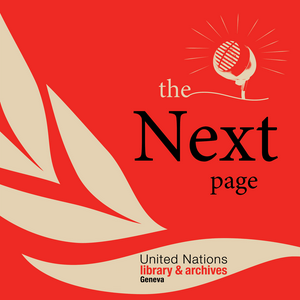GenSouth: Four visions for multilateralism
This episode is released to mark the International Day of Multilateralism and Diplomacy for Peace 2025.
We invited Marie Hürlimann, Co-Director, and Raphaëlle Leung, Head of Communications of Foraus, a Swiss participatory think tank for young thinkers who want to shape tomorrow’s foreign policy, to talk about the latest Foraus publication that they co-edited with Maximillian Rau: GenSouth - New voices from the Global South for the multilateral system of the future.
GenSouth is a programme designed to bring together academics and think tank researchers from the Global South, aged between 25 and 35, to engage in discussions about the multilateralism of the future and to develop actionable, ambitious recommendations.
Marie and Raphaëlle talk with Francesco Pisano, Director of the UN Library & Archives in Geneva, about the GenSouth project. They reveal to us four visions of possible futures of multilateralism elaborated in the report.
GenSouth sees a world built on collective responsibility where the international community does not stand by in the violation of IHL; a reimagined South-South cooperation prioritising resilience, sustainability, and sovereignty; a transformation of the global financial architecture to empower vulnerable communities' access to climate finance; and Security Council reform for the inclusion of global south and the future of peace.
With thanks to the authors: Subia Ahmad, Maria Dominika Mediana Rossa Budhisatrio, Marième Cissé, Marília Closs, Paula Lottenberg, Muhammad Nidhal, Luanda Mpungose, Kwaji Ble Ngida, Olumide Onitekun, Luis Gabriel Herrera Perez, Beatriz Pfeifer, Pratyush Sharma, Parousia Tlhompho Shikwambane, Malena Viú.
Read about GenSouth and access the report: https://foraus.ch/en/projects/gensouth-programme-2024/
Resources: Ask a Librarian!
Where to listen to this episode
Apple podcasts: https://podcasts.apple.com/us/podcast/the-next-page/id1469021154
Spotify: https://open.spotify.com/show/10fp8ROoVdve0el88KyFLy
YouTube: https://youtu.be/7lh81yuAPxQ
Content
Guests: Marie Hürlimann and Raphaëlle Leung, Foraus
Host: Francesco Pisano, Director, UN Library & Archives Geneva
Recorded and produced at the United Nations Library & Archives Geneva
